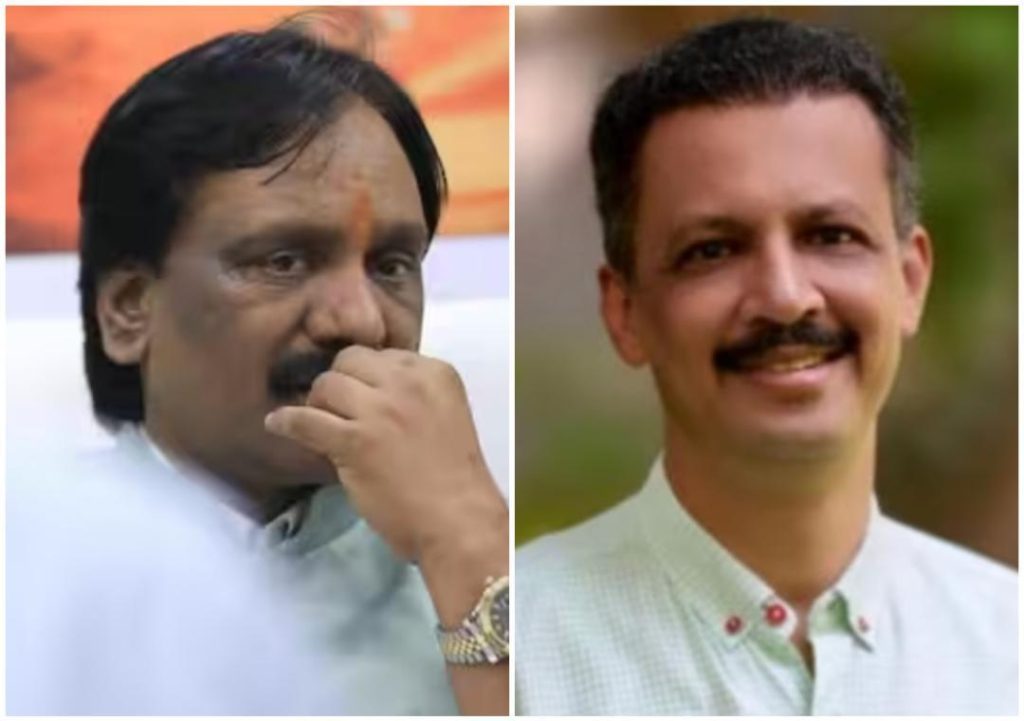
Sena (UBT) Demands 20% Reservation for Marathis in Mumbai Buildings
In a recent development that has sparked controversy, the Shiv Sena (UBT) lawmakers have demanded that 20% of houses in buildings in Mumbai be reserved for native Marathi speakers. This move comes amidst the ongoing debate over the use of Hindi and Marathi languages in Maharashtra. The demand was made by Leader of Opposition in the Legislative Council, Ambadas Danve, and Milind Narvekar, who submitted a letter with the demand to state minister and Shiv Sena leader Shambhuraj Desai.
The Shiv Sena (UBT) has been a long-standing advocate for the rights of Marathi-speaking people, and this demand is seen as another attempt to assert their influence in the state. The party has been vocal about the importance of promoting the Marathi language and culture, and this demand is likely to be seen as a way to achieve that goal.
The demand for reservation is based on the idea that native Marathi speakers are facing difficulties in finding accommodation in Mumbai, which is a city with a high demand for housing. The Shiv Sena (UBT) argues that by reserving 20% of houses in buildings for Marathi speakers, the city can be made more inclusive and equitable for the native population.
However, this demand has been met with criticism from other parties and individuals who argue that it is discriminatory and goes against the principles of equality and justice. Many have pointed out that the demand is based on linguistic lines and has the potential to create social and economic divisions in the city.
The issue of language is a sensitive one in Maharashtra, and the demand for reservation has sparked a heated debate. The Shiv Sena (UBT) has been accused of trying to impose Marathi on non-Marathi speakers, while others have argued that the demand is necessary to preserve the identity of the Marathi-speaking people.
The debate over language is not new in Maharashtra. The state has a complex linguistic landscape, with Marathi being the official language, but Hindi and English also widely spoken. The issue of language has been a source of tension between different communities in the state, and the demand for reservation has added to the complexity.
The Shiv Sena (UBT) has been at the forefront of the debate over language, and this demand is seen as another attempt to assert their influence in the state. The party has been vocal about the importance of promoting the Marathi language and culture, and this demand is likely to be seen as a way to achieve that goal.
The demand for reservation has also been criticized by other parties and individuals who argue that it is unnecessary and goes against the principles of equality and justice. Many have pointed out that the demand is based on linguistic lines and has the potential to create social and economic divisions in the city.
The controversy over the demand for reservation has sparked a heated debate, with many taking to social media to express their views. The issue has also been discussed in various forums and meetings, with experts and stakeholders weighing in on the issue.
In conclusion, the demand for 20% reservation for Marathis in Mumbai buildings is a contentious issue that has sparked a heated debate. While the Shiv Sena (UBT) argues that the demand is necessary to preserve the identity of the Marathi-speaking people, others have criticized it as discriminatory and goes against the principles of equality and justice.
As the debate continues, it remains to be seen how the government will respond to the demand. Will they accept the demand and implement it, or will they reject it and find alternative solutions to address the issue of housing in Mumbai?
Only time will tell, but one thing is certain – the demand for reservation has sparked a heated debate and has brought the issue of language and identity to the forefront. As the debate continues, it is essential to approach the issue with a nuanced understanding of the complexities involved and to find a solution that is fair and just for all parties involved.






